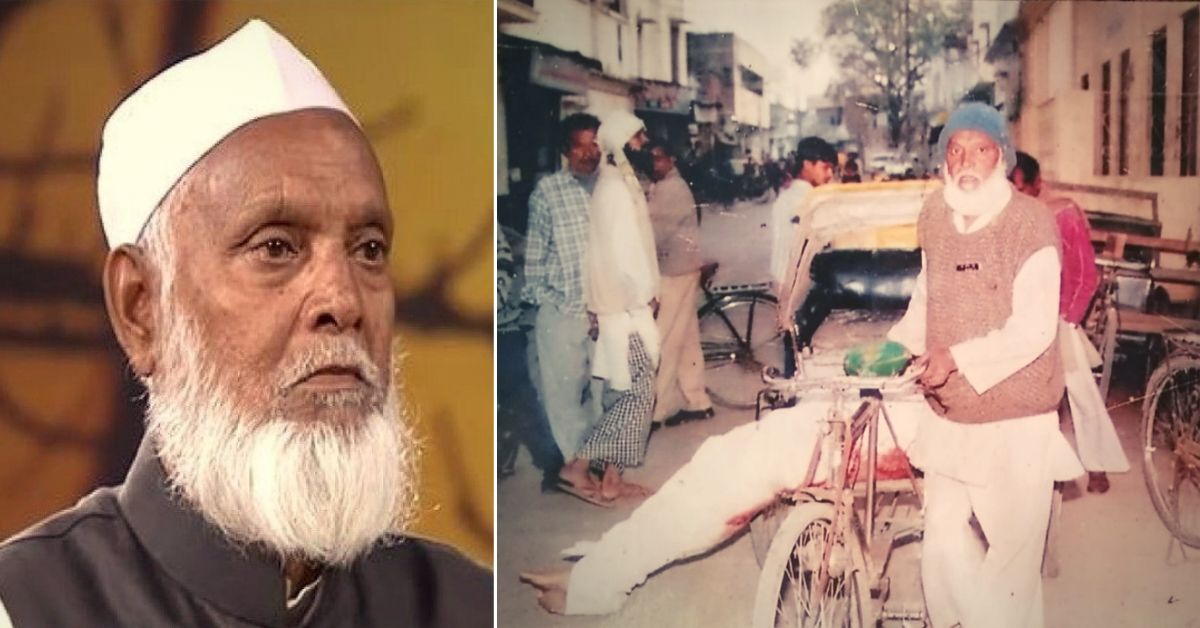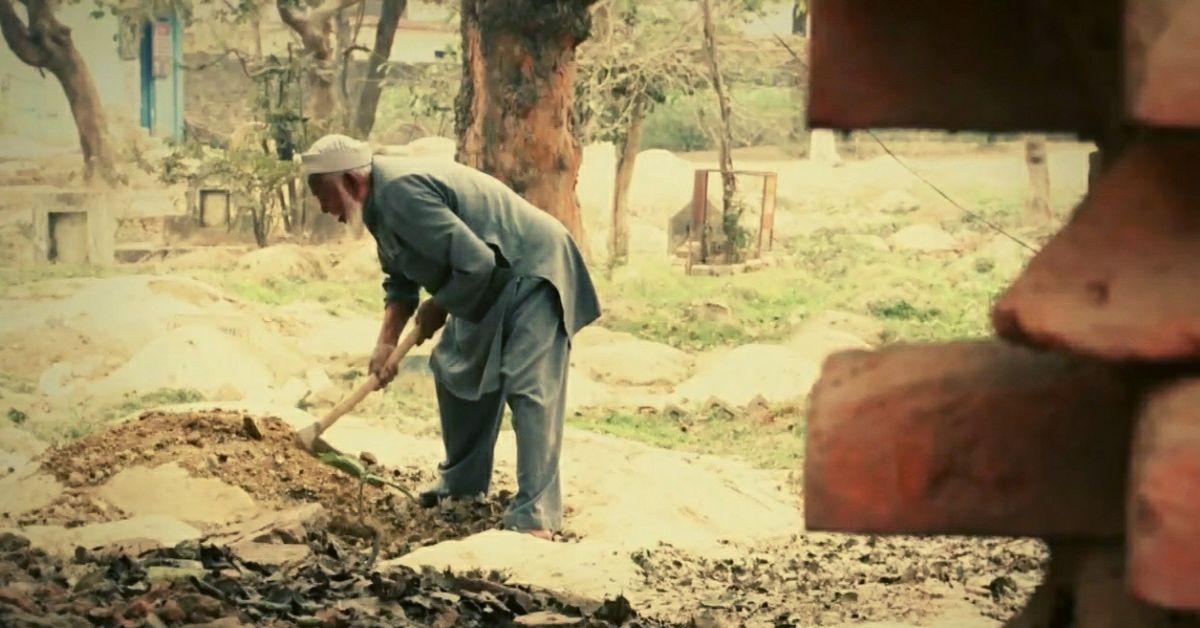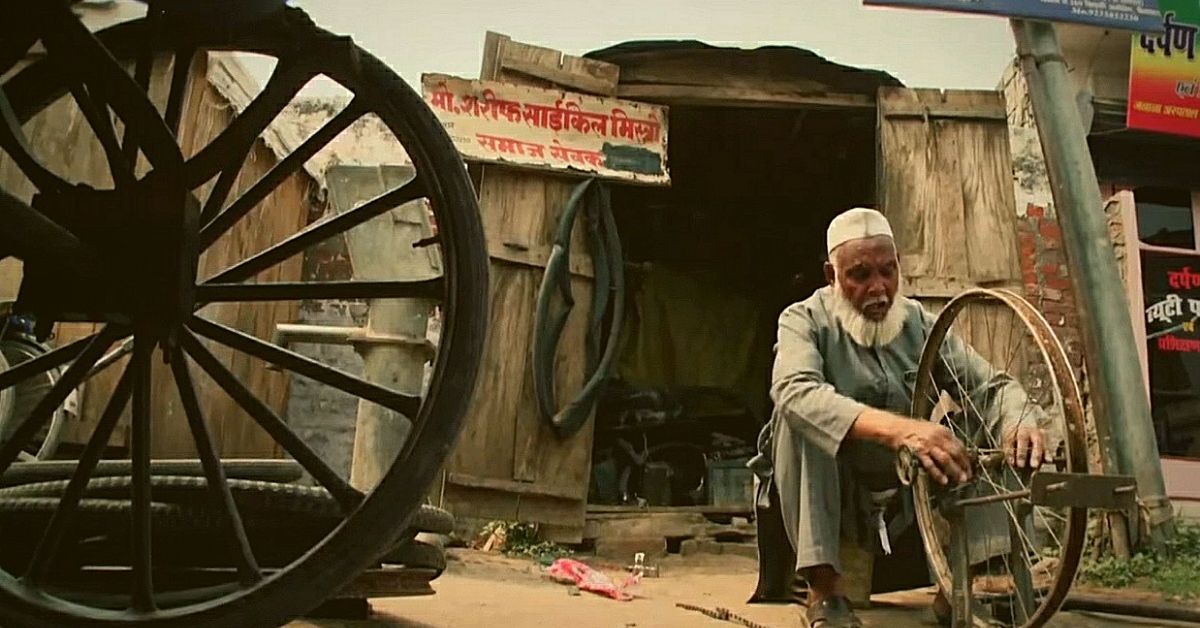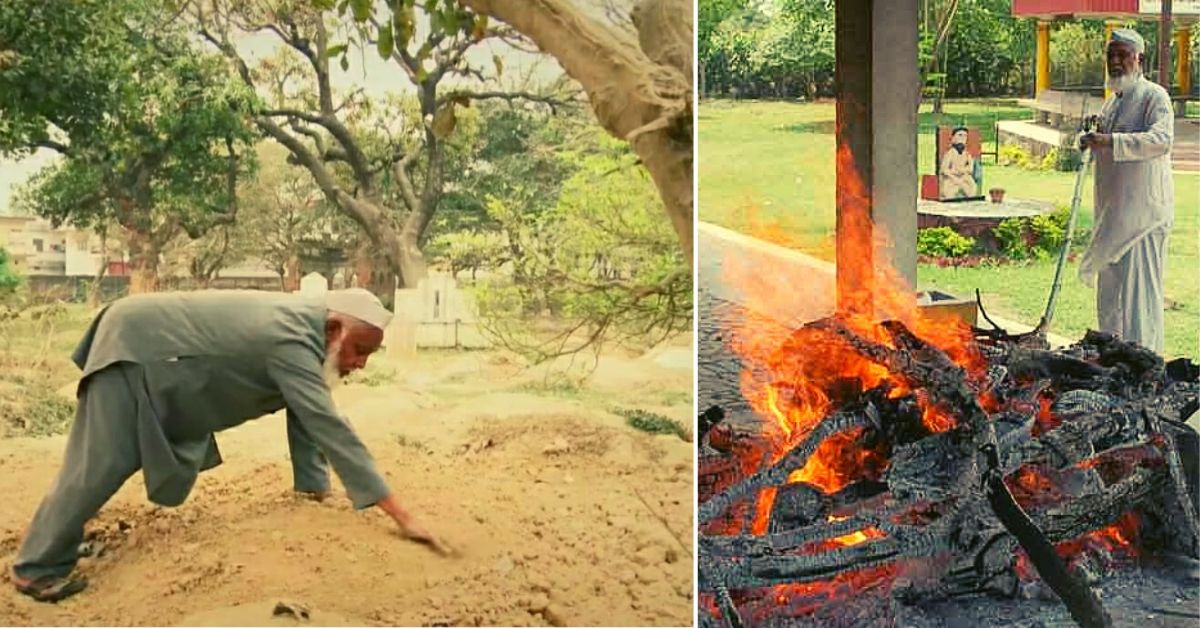82-YO ‘Shareef Chacha’ Has Spent 27 Years Burying, Cremating 4000+ Unclaimed Bodies
"I spent over a month frantically searching for my son. And finally, one day I found his dead body in a sack, devoured by stray animals. I decided never to let another soul go through that torment," says the cycle mechanic, who was recently awarded the Padma Shri.

With The Positive Collective, The Better India’s COVID-19 coverage is available to regional language publications for free. Write to [email protected] for more details.
“Grief either breaks you or makes you stronger. For me, it did both in succession. I was shattered until I could break no more, so I picked up the pieces to create something substantial,” says 82-year-old Mohammad Shareef.
Popularly known as Shareef Chacha, this Faizabad resident is doing what many would hesitate to do—poking embers at pyres and digging up burial grounds for strangers, to accord them some dignity in death.
“To others, they are just corpses of strangers, but for me, they are my children. Everyone deserves dignity in death, and I will continue to give them that till my last breath,” says Shareef.
For the last 27 years, Shareef has performed the last rites for thousands of deceased by cremating more than 3,000 unclaimed bodies of Hindus and burying over 2,500 Muslims.

Whether mutilated, decapitated, wrapped in bloody clothes, stiff due to rigor mortis or decaying, Shareef accepts all bodies irrespective of their physical condition and performs their last bath at a room inside the Taadwali Takai cemetery in Rakabganj, Faizabad.
For this selfless work, he was conferred with the Padma Shri, India’s fourth-highest civilian award, in 2020.
His grandson, Mohammad Shabbir, who is an IT professional, is one of the few family members to support and help him in this noble cause.
“Years ago, when he started this work, there was no one to help him. He would ride his cycle and go to mortuaries, police stations, railway stations, etc. enquiring about any unclaimed bodies and insist on providing his services for free. People would call him mad, some would even shun him, but his resolve only grew with time. And, today I am glad that the world has come to acknowledge his work,” says Shabbir.
But what many do not know is that the root of Shareef’s benevolence comes from deep-seated pain—his son’s death.
Channelling Pain Into Social Service

It was 1992, and the cycle mechanic who somehow managed to make ends meet, was a bit worried but supportive, when his eldest son, Mohammad Raes Khan decided to go to Sultanpur to work as a chemist. He waited to hear from him, but more than a few weeks passed by and there was no call or letter.
Distressed, he visited Sultanpur in search of his son, only to find him missing.
“I spent over a month going from door to door, frantically searching for my son. And finally, one day I found his dead body in a sack, on a railway track, devoured by stray animals. I can never forget the sight and was mad with agony. That was when I decided never to let another soul go through that torment,” says Shareef, with a slight tremble in his voice.
Since then, the octogenarian with the help of his grandson and a few rickshaw-pullers and helpers, namely Santosh, Mohd Ismail and Shyam Vishwakarma has been making sure no one goes through the pain and humiliation, as his son.

His usual routine would include visiting the police station, nearby hospitals or mortuary to make enquiries, but due to his age, the police now come to him with the bodies, after nobody has claimed them for 72 hours.
However, performing the last rites can be expensive, as the burials cost at least Rs 5000 and cremation costs around Rs 3000-3500. With Shareef being too old to work at the cycle shop, the responsibility of supporting a family of 15 falls on a few, including Shabbir.
“It has been quite difficult, but we somehow managed based on the occasional donations we got, and we hope that with the recognition, more people will come forward to lend a helping hand. Nevertheless, his mission and resolve to continue this against all the odds truly inspires and motivates us every day, and I can only hope that more people see it the way we do—with utmost pride and empathy,” concludes Shabbir.
(Edited by Gayatri Mishra)
Like this story? Or have something to share?
Write to us: [email protected]
Connect with us on Facebook and Twitter
If you found our stories insightful, informative, or even just enjoyable, we invite you to consider making a voluntary payment to support the work we do at The Better India. Your contribution helps us continue producing quality content that educates, inspires, and drives positive change.
Choose one of the payment options below for your contribution-
By paying for the stories you value, you directly contribute to sustaining our efforts focused on making a difference in the world. Together, let’s ensure that impactful stories continue to be told and shared, enriching lives and communities alike.
Thank you for your support. Here are some frequently asked questions you might find helpful to know why you are contributing?


This story made me
-
97
-
121
-
89
-
167











